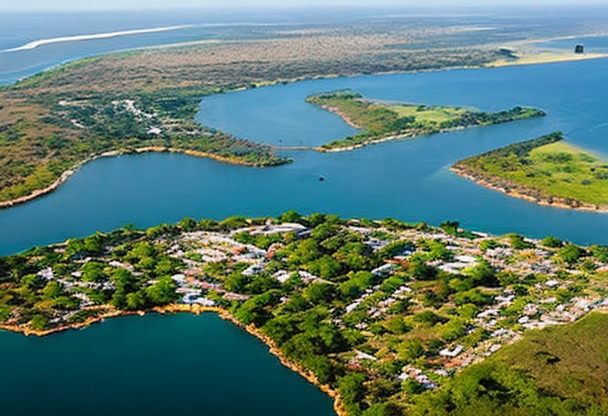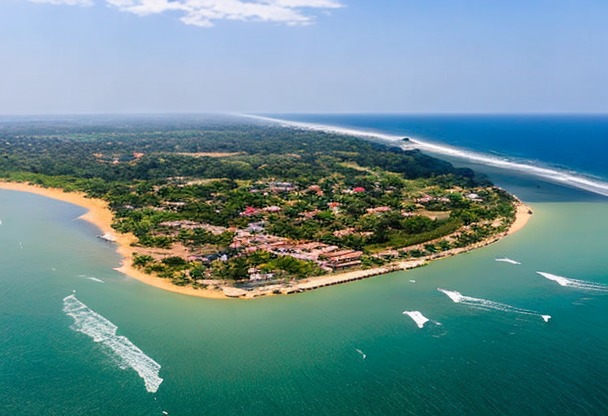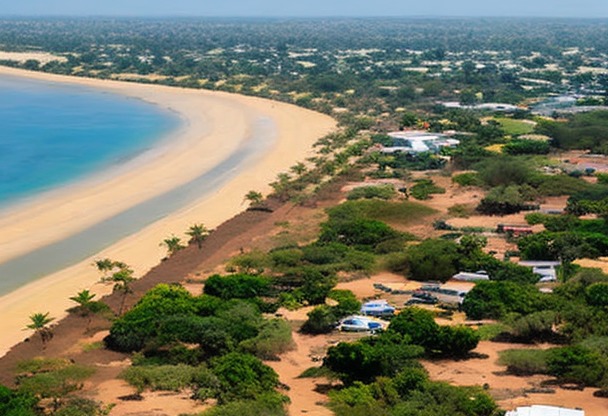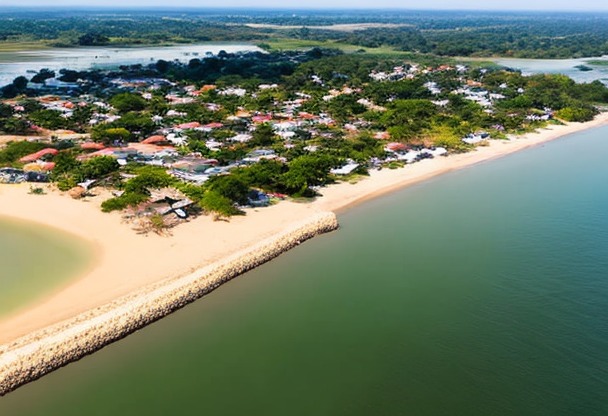Best time to travel to Gambia
Choosing the right time for your trip to The Gambia can make all the difference. It's important to consider climatic elements, seasonal events and busy tourist periods to maximize your travel experience.

Location
Climate
Seasons in Gambia
The Gambian year is divided into two main seasons:- The dry seasonwhich runs from November to May
- The rainy seasonalso known as wintering, which takes place between June and October
The dry season: the best time to visit Gambia
From November to May, the climate in Gambia is particularly pleasant. Temperatures are warm without being excessive, generally fluctuating between 25°C and 32°C. This is also the period when the tourist numbers are the highestThe summer months of December, January and February in particular. It's the ideal time to enjoy the beaches, take long walks in the countryside or discover the country's many national parks.The rainy season: less favourable for tourism
Between June and October, Gambia experiences a more humid and warmer climate, with temperatures that can exceed 40°C. Rainfall is frequent and often heavy, especially in August and September. Although this period is less favorable for tourism, it nevertheless offers the advantage of a more pleasant climate. low tourist numbersThis allows you to benefit from lower rates on accommodation and activities.Major cultural events in The Gambia
Throughout the year, Gambia offers many cultural and festive events to discover during your stay. Here are just a few of them:- International Roots Music Festivalheld every two years in May or June, celebrates Gambia's African roots and cultural diversity through concerts, workshops and conferences.
- The Gambia Fashion and Arts Festivalheld every December, celebrates the creativity and talent of local artists in fashion, dance and the visual arts.
- The Gambia International Film Festivalwhich takes place in November, features a selection of Gambian and international films, as well as meetings with the directors and actors.
- The Gambia International Marathonheld every year in January, is an opportunity to take part in a sporting competition while discovering the country's breathtaking landscapes.
Public holidays in Gambia
In addition to cultural events, it's important to take public holidays into account when planning your trip. Here are just a few:- Independence DayFebruary 18 commemorates Gambia's independence from the United Kingdom in 1965.
- Labour Daycelebrated on May 1, is an opportunity for Gambians to enjoy a day of rest and take part in various festive and trade union events.
- The Feast at the end of Ramadan (Eid al-Fitr) and the Feast of Sacrifice (Eid al-Adha) are two major Muslim celebrations whose dates vary according to the lunar calendar. They are marked by prayers, festive family meals and donations to the needy.
- National holidayJuly 22 marks the anniversary of the revolution that brought Yahya Jammeh to power in 1994.
- ChristmasDecember 25, and New Year's DayJanuary 1st are also public holidays in The Gambia.
Insurance

Your credit card does not cover you in all situations, that is whyIt is essential to take out insurance before you leave to avoid any unpleasant surprises. If you need to see a doctor or be hospitalized, in some countries, medical costs are very high and you will then find yourself having to pay several thousand euros.
Our partner Chapka Insurance proposes the contract CAP ASSISTANCE 24/24 with many essential guarantees.


Flights

Your flight has been cancelled or delayed ?
You may be eligible for a compensation of up to €600 ! For this, lawyers are responsible for handling your claim with the airline and are only paid when the reimbursement is effective.
In conclusion, no financial risk for you, only advantages!
Immigration statistics for Gambia
The Gambia welcomes a large migrant population every year, attracted by its strategic geographical location between Europe and sub-Saharan Africa. The main reasons why these people settle in The Gambia are :- the search for economic opportunities,
- fleeing conflicts or unstable political situations in their home countries,
- family reunification.
Migrants in transit to Europe
As well as immigrants settling in Gambia, the country is also a transit point for many migrants on their way to Europe. In 2016 alone, almost 12,000 Gambians reached Italian shores by crossing the Mediterranean. However, these figures have tended to fall in recent years, mainly due to efforts by Gambian and European authorities to combat human trafficking and encourage legal migration.Most popular visas in Gambia
To enter and stay in Gambia, it is necessary to obtain a visa adapted to the purpose of your trip. The different types of Gambian visa are :- tourist visa,
- business visa,
- work visa,
- student visa,
- permanent resident visa.
Gambian visa requirements
To obtain a Gambian visa, it is necessary to- have a passport valid for at least six months after the planned return date,
- complete and sign the visa application form,
- provide two recent passport photos,
- pay visa fees, which vary according to the type and duration of your stay.
International tourism in The Gambia: key figures
Tourism is a key sector for the Gambian economy, accounting for nearly 20% of gross domestic product (GDP) and employing over 100,000 people. Every year, The Gambia welcomes around 200,000 international tourists, mainly from European countries such as the UK, the Netherlands, Belgium, Germany and Scandinavia.Gambia's tourist attractions
The Gambia's main tourist attractions are :- sandy beaches along the Atlantic coast,
- its year-round sunny climate,
- its diverse flora and fauna, particularly in nature reserves and national parks,
- its rich culture and history, with historic sites such as Kunta Kinteh Island and the megalithic stones of Wassu,
- the hospitality of its people and the diversity of its culinary traditions.
The challenges facing Gambia's tourism sector
Despite its strengths, the Gambian tourism sector faces a number of challenges:- dependence on the European market, with little diversification of visitor sources,
- marked seasonality, with a peak in visitor numbers during the dry period from November to April,
- increased competition from other African destinations,
- infrastructure and training needs to improve service quality.


